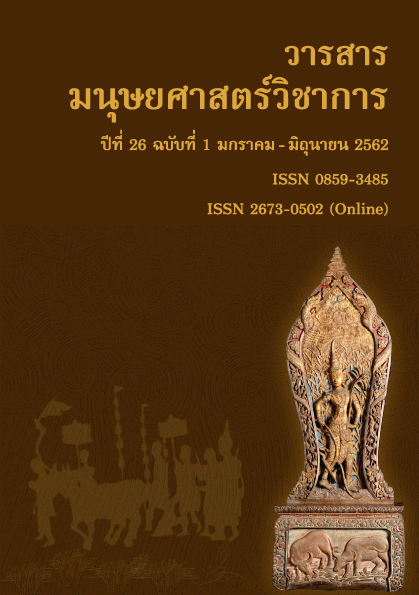Buddhist Peace Making A Case Study of the King Brahmadatta and the Prince Dīghāvu
Main Article Content
Abstract
This study presents an analysis of the plan of action for making peace found in the story of King Brahmadatta and Prince Dīghāvu as a Buddhist means for achieving peace and its implications for making peace in similar cases.
Peace is an endeavour in which human beings, who possess intellect, employ reason to overcome conflicts among both individuals and states. The way to achieve peace that Buddhism gives to the world is a process called ‘the Threefold Training:’ training in higher morality, which consists in controlling one’s speech and action so as not to harm others; training in higher mentality, which consists in the mental-control practice leading to the high meditative state of equinaminity, in which one experiences all pervading inner peace; and training in higher wisdom, which consists in developing insight to comprehend the truth that all human beings are related to each other, and thus should live together with loving kindness and compassion.
The findings of this study reveal that the case study of peace making between King Brahmadatta and Prince Dīghāvu originated because of a dispute arising from differences in conduct in the matter of discipline leading to schism in the order between two groups of monks at Wat Ghoshitaram in Kosambi. Addressing this situation, the Buddha proposed the story of his former life as Prince Dīghāvu as a case study to instruct those monks on a method of making peace starting with source of the problem, which was war, and ending in peace.
The process King Brahmadatta and Prince Dīghāvu used in attaining peace had the following steps:
1. Overcoming anger with forgiveness.
2. Feeling guilty, apologizing, and healing the party who had done wrong to the other.
Finally, the author of this study has conceptualized Buddhist peace making as a thought model in order that it may be applied to making peace among individuals and in society depending on the specific case.
Article Details
References
พระไตรปิฎกและอรรถกถาแปล 91 เล่ม. (2556). พิมพ์ครั้งที่ 7. เล่มที่ 40, 58. กรุงเทพฯ: มหามกุฏราชวิทยาลัย.
พระไตรปิฎกภาษาไทย ฉบับมหาจุฬาลงกรณราชวิทยาลัย. (2539). เล่มที่ 5, 10, 11, 12. กรุงเทพฯ: มหาจุฬาลงกรณราชวิทยาลัย.
พระธรรมปิฎก (ประยุทธ์ ปยุตฺโต). (2540). การศึกษาเพื่อสันติภาพ. พิมพ์ครั้งที่ 6. กรุงเทพฯ: มูลนิธิพุทธธรรม.
อุกฤษฏ์ แพทย์น้อย. (2541). ปรัชญาการเมือง. พิมพ์ครั้งที่ 14. กรุงเทพฯ: มหาวิทยาลัยสุโขทัยธรรมาธิราช.
Aristotle. (1998). Nicomachean Ethics. Translated by Drummond Percy Chase. Dover Thrift Editions. Mineola, New York: Dover Publications, Inc. (Originally published as Aristotle. (1911). Aristotle’s Ethics. London: J. M. Dent & Sons.)
Hirsch, Jr., E. D.; Kett, Joseph F.; Trefil, James. (2002). The New Dictionary of Cultural Literacy: What Every American Needs to Know. Boston, New York: Houghton Mifflin Company.


